Understanding Podcasts: An Interview with The Cycling Podcast II
12 Mar 2020
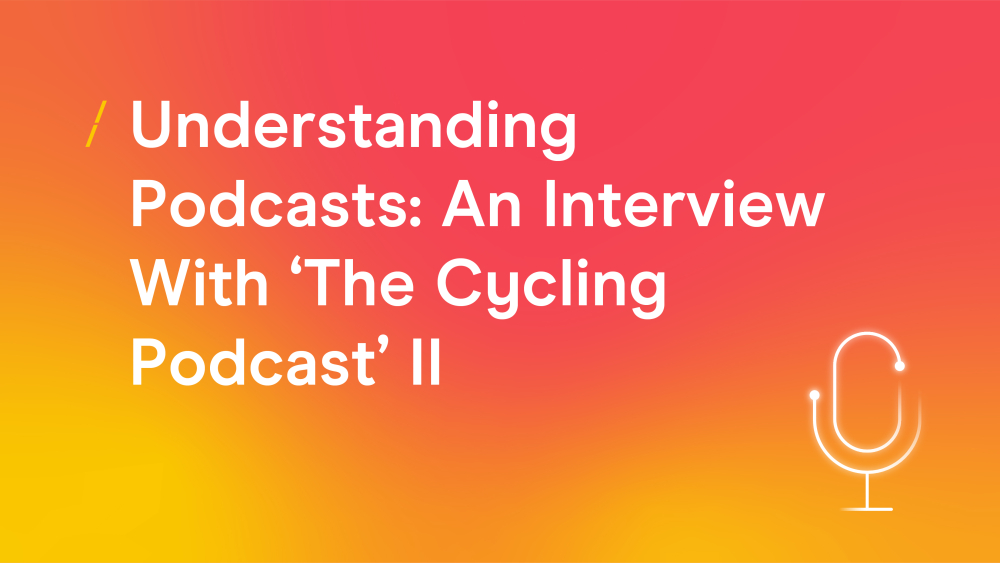
Podcasts are an increasingly popular media for Brits, with over a third of consumers listening to them at least monthly according to the DMA’s research.
To find out more about the channel and how consumers trust this channel more than any other, read the ‘Customer Engagement: Acquisition and the Consumer Mindset’ report and our ‘Future Trends: Speak & Listen’ article.
The DMA wanted to understand the drivers behind this growing channel and understand the opportunities to brands, so who better to speak to than someone behind one of the most popular podcasts in the UK – The Cycling Podcast’s Lionel Birnie.
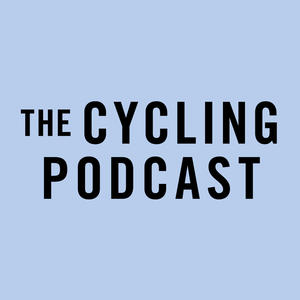 Lionel is a sports journalist, author, publisher and co-founder of The Cycling Podcast – along with Daniel Friebe and Richard Moore. This is the second part of our interview with him – find part one, here.
Lionel is a sports journalist, author, publisher and co-founder of The Cycling Podcast – along with Daniel Friebe and Richard Moore. This is the second part of our interview with him – find part one, here.
DMA: How did the relationship with The Telegraph start and how did that work?
The Telegraph became our media partner in 2014.
There was never a financial relationship between us, but there were benefits for both of us.
With the Tour de France starting in Yorkshire that summer, The Telegraph was looking to beef up its cycling coverage. They agreed to publish the podcast on their website in exchange for a mention in the episodes.
We hoped the arrangement would expose the podcast to a larger, broader audience, and it did.
It worked very well for us for a time, but there was no other editorial involvement from them, we were very much an independent podcast.
DMA: How does the podcast work commercially then?
As you know, podcasts are free to listen to.
But, as I’m sure you can imagine, covering three-week long events like the Tour de France (and its Italian and Spanish equivalents, the Giro d’Italia and Vuelta a España) can be expensive.
Rather than watch on TV at home and sit round a table and analyse the racing, our Grand Tour podcasts depend on capturing the flavour and atmosphere of the races and that means being there.
We have to cover those costs somehow and we’ve developed a model which spreads the load.
There’s no single method of funding in the media – there never has been, really.
Our model is a mix of sponsorship, advertising and a subscriber-only version of the podcast for ‘Friends of the Podcast’, which I’ll come on to shortly.
“We had a number of early sponsors, but in 2016 Science In Sport became our first long-term partner.
Their support directly enabled us to do daily coverage of the Giro d’Italia in the same way we had covered the Tour de France, so that was a hugely important step forward for us.
Science In Sport is also a respected and recognised brand in cycling and I think their longer-term support made people take notice.
Not long after they came on board, Rapha approached us to become our title sponsors and that was a relationship that lasted three-and-a-half years. The arrangement expired at the end of 2019, but Rapha’s long-term sponsorship gave us the foundation on which to build everything else.
Rapha were our ‘title’ sponsors, so they took top billing in the opening titles and the first of three ‘live read’ advertising slots.

Science In Sport took another live read slot.
We deliver messages for them such as news of new products, upcoming events or promotions. Science In Sport offer our listeners a 25 per cent discount, which has been very popular, and we’ve also run interviews with their nutrition experts.
These have the added bonus of being of specific interest to many of our listeners, although we are very clear about what is advertising and what is editorial.
DMA: So how did the addition of a paid for option come about? Did you consider crowdfunding earlier?
Before the long-term sponsorships came along, we had to find another way to generate income.
We considered all sorts of funding models. We decided against crowdfunding, which was, and is, very popular because we didn’t really want to ask for money and then find a year later we were back to square one again.
Rather than ask for donations we wanted to offer something in exchange for a subscription fee and so we decided to create a series of 11 ‘special’ subscriber-only episodes.
Our message to listeners was that if they signed up as a friend and paid a subscription fee (which is now £15 per year – the price of a few coffees) they were directly contributing to keeping our year-round coverage free for all.
But they would also get to listen to a series of longer-form, or more in-depth or behind-the-scenes episodes.
The mix of sponsorship and the Friends of the Podcast subscribers meant we could expand our coverage to include the Vuelta a España and complete the set of Grand Tours.
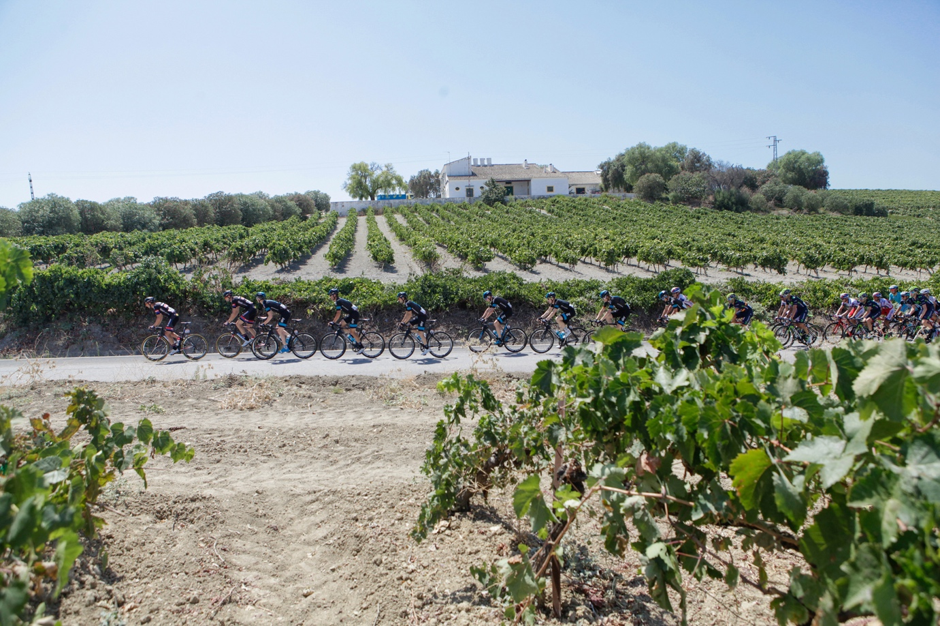
DMA: How has your relationship with podcast platforms evolved?
At the start of 2018, Audioboom – who had hosted our audio free of charge since we started in 2013 – explained (not unreasonably) that they couldn’t keep offering that service for nothing.
We knew Audioboom would want to recoup their costs at some point so it wasn’t a surprise, and it was perfectly reasonable of them, but it felt like a significant challenge at the time.
They provide a very reliable service for us and our listeners. We talked to them and they offered us the choice between paying a hosting fee or carrying live read style adverts.
It was a clever pitch because paying a hosting fee based on the number of episodes and the size of our audience was not terribly attractive.
We worked out it could get pretty expensive.
So we agreed to opening up one advertising slot for Audioboom to sell on a revenue-share basis.
Initially, I think we were a bit nervous about our ability to deliver advertising content for companies that were not involved in cycling and retain our authentic, credible voice but we made the decision early on that we would only advertise things we were happy to endorse.
I know that sounds pretty obvious, but it’s actually a really important thing to establish.
Gradually we have got to grips with it and the number of advertisers and the range of products has broadened significantly.
DMA: So how do you decide on which projects to support or sponsorships to take?
Our live read advertising is managed by Audioboom, although we have total control over which companies we work with.
Because Richard and I deliver the messages, we have to be comfortable with what we are saying.
Although we are being paid to deliver a message, we don’t want people to think that we’re only saying it because we’re being paid.
By that, I mean we want the messages to be authentic and credible.
And the messages are credible because, as it turns out, I’ve ended up becoming a customer of a lot of the companies we’ve endorsed.
We’ve had a mix of advertisers – some are from the cycling industry, others that are not. I’ve enjoyed the challenge of making the adverts sound like they are part of the show.
DMA: Have you ever declined a partnership?
The range and type of advertisers Audioboom have brought to us has been broad, but we have turned down a couple of individual advertisers.
I don’t think it would be fair to name them here because it’s only been a case of them not being the right fit for us.
There are products or services I wouldn’t feel comfortable advertising, and I’m sure Richard is the same, so we have an agreement that if one or other of us is not happy then we won’t accept that advertiser.
But we do consider every partner Audioboom presents to us, we’ll look into the company and what they do and we’ll speak to them to find out what sort of message they want to convey before we make our decision.
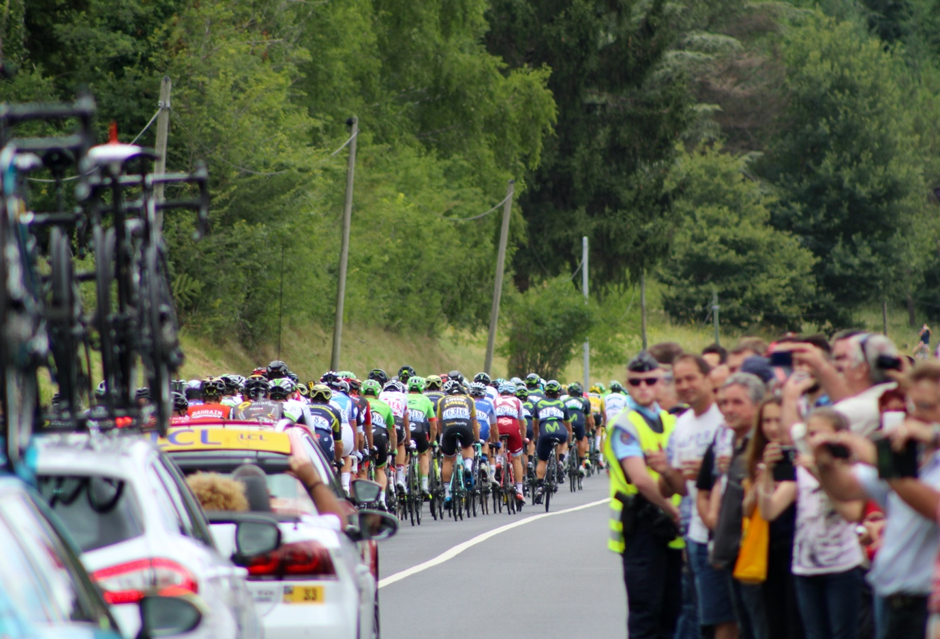
DMA: Our research shows that people who listen to podcasts feel the ads/marketing messages they hear there is more relevant to them, why do you think they feel that’s the case?
I think it’s because we know our audience.
We also have a relationship with our listeners that means that they tell us what they like and dislike. We welcome that feedback because it’s very useful.
We’d be naive to think everyone loves advertising.
But we have always been transparent about why the advertising is there. It’s in the best interests of the show and we have set limits.
What has surprised me – although perhaps it shouldn’t – is how engaged many of our listeners are with the advertising content.
On our recent tour of live shows at theatres round the UK and Ireland we took questions from the audience and every night someone would ask us about an advertiser: ‘Is Lionel wearing anything he bought from Stitch Fix?’ for example, or ‘Can you sing the Science In Sport discount code song?’
I hope that people recognise that we apply the same rigour, honesty and transparency to our advertising as we do the editorial.
I think the way the podcast market has evolved makes it easier too.
If anyone came to us having listened to an American podcast first, they might think our advertising is very light in comparison.
Most podcasts now carry advertising so it’s become more accepted as part of the package.
DMA: What do you think the future holds for podcasting?
I don’t know for sure, and that is one of the things that makes the medium so exciting.
Richard often talks about the intimacy and flexibility of audio.
You can discuss and debate a tricky subject from a number of different angles that you can’t do as effectively in print or even on television. In cycling, where controversial stories pop up pretty regularly, that is very handy.
You can say things in a podcast that you might think twice about writing because people can hear the tone of your voice and hear how you meant something, not just stare at a cold statement in black and white.
Audio is harder to strip the tone and context from things and I feel there’s less pressure to come to a definitive conclusion.
We can have a pretty strident debate and then move on without having to up the story neatly.
One of the revelations is the relationship between us and the listeners.
People come up to us at bike races and say how much they’ve enjoyed listening. Some people repeat catchphrases to us that we never meant to be catchphrases.
There’s a feeling of inclusivity on the listeners’ part and that is something that I never experienced writing for newspapers of magazines.
I also feel that the wider public is only just catching on and that podcasting is on the cusp of another big period of growth.
The early days of podcasting seemed to me to be when Ricky Gervais and Stephen Merchant did their podcast but it was cumbersome then – you had to download your episodes to an iPod.
The first big boom was when everyone started to have a smartphone in their pocket. Now it feels like the major broadcasters are beginning to realise the power of podcasts.
I suppose – being part of a trio of journalists who started in the written press – there is a sense that the podcasting space could become dominated by celebrities.
In our sector, sport, will the ex-sportspeople take over to a great extent?
I suppose it is inevitable they will find an audience more easily but on the other hand we have six years behind us and the beauty of podcasting is that it is possible to build an audience organically.
DMA: Lastly, if you could offer one piece (or more) of advice to marketers/brands about working with a podcast producer, what would that be?
I think it’s always helpful for us to have a really clear idea of what the advertiser is hoping to get out of their association with The Cycling Podcast.
What message do you want to get across to our listeners?
It’s important for us to have a degree of flexibility to deliver the message in a way that feels natural and comfortable for us.
No one benefits if the audience thinks we’re just reading out something because we have to.
So the more we know about the product or service the better. It’s always great to sample the product first, so we can talk first-hand about out our experiences.
I’d also urge advertisers to take a longer view and think in terms of a coherent campaign.
When a company advertises on TV or radio, they don’t just take out one ad slot. I don’t see why podcasts would be any different. Advertising experts say it takes a degree of repetition for a message to come across.
I suppose it’s no different to any form of advertising.
Think about the key messages you want to convey and make it clear to us what it is you’re hoping for.
If you want people to visit your website, make the website address as easy as possible for people to remember. If you want people to use a discount code, make the code catchy. If you want to expose your brand to people, help us deliver something that will make people take notice.
Part one: Starting out in pods, growing pains and next steps.
Find out more about how consumers engage with podcasts and the future of the channel within the DMA’s ‘Customer Engagement: Acquisition and the Consumer Mindset’ report and ‘Future Trends: Speak & Listen’ article.
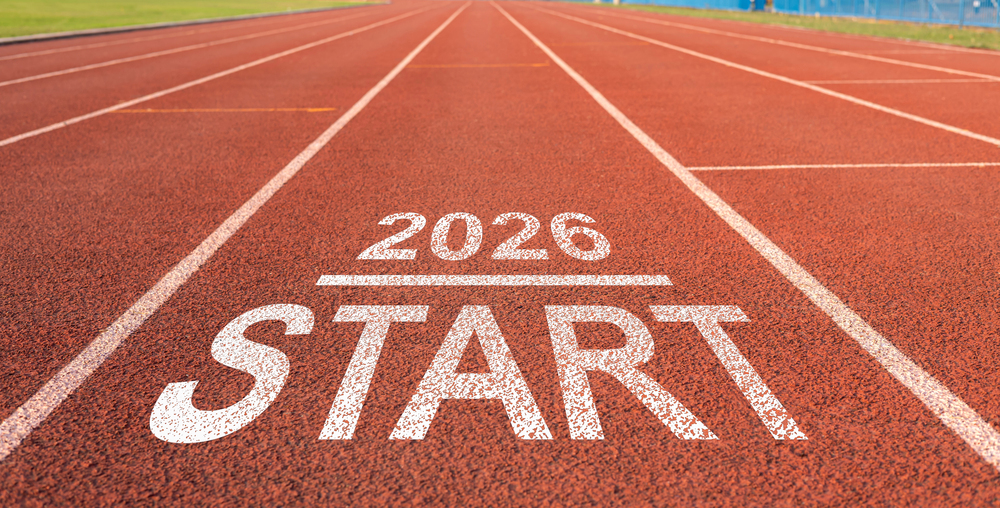
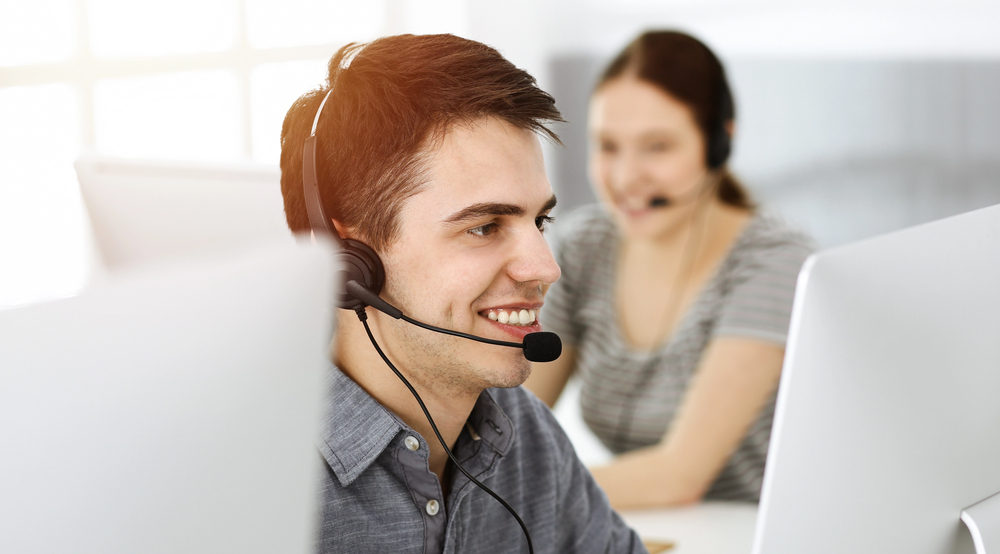

1.png)